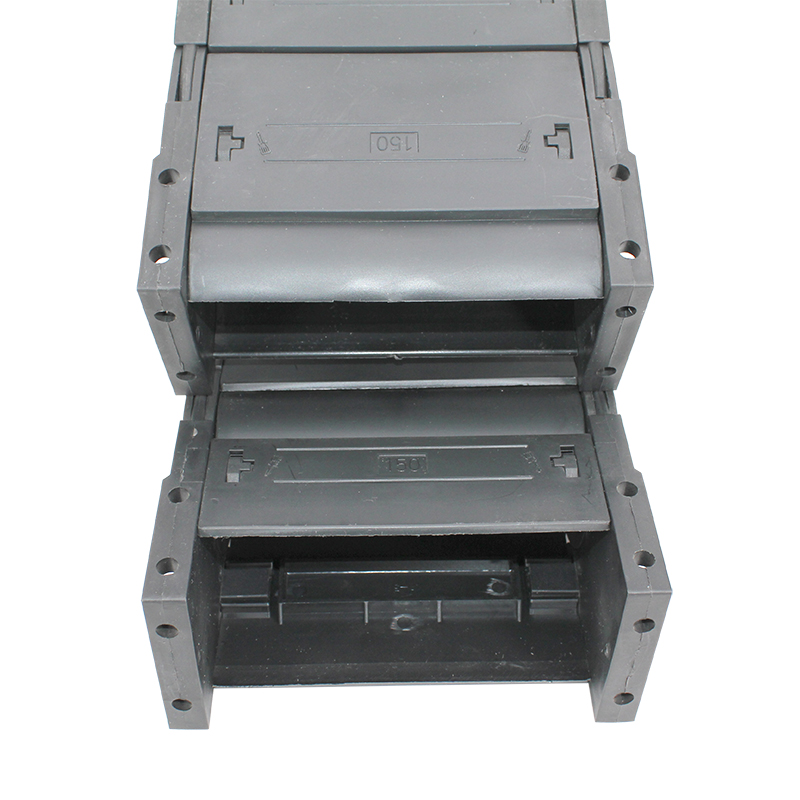Innovative Metal Cable Carrier Solutions for Efficient Cable Management and Enhanced Industrial Performance
Understanding Metal Cable Carriers An Essential Component for Industrial Applications
In the heart of many industrial and automation environments, metal cable carriers play a critical role in ensuring efficient and safe operations. Often referred to as cable drag chains or cable carriers, these robust systems are designed to support and protect various cables and hoses as they move with machinery and equipment. With the increasing complexity of modern machinery, the demand for reliable cable management solutions has never been greater.
What is a Metal Cable Carrier?
Metal cable carriers are protective conduits typically made from various metals, including steel or aluminum. They are designed to contain and guide electrical wires, fiber optic cables, hydraulic hoses, and other flexible conduits as they move along with machinery, particularly in applications with significant linear motion. Unlike their plastic counterparts, metal cable carriers are often used in environments that require higher durability and strength, such as heavy machinery, robotics, and other demanding applications.
Key Benefits of Metal Cable Carriers
1. Durability and Strength Metal carriers are engineered to withstand harsh environmental conditions, including extreme temperatures, heavy loads, chemicals, and abrasions. This durability makes them suitable for heavy-duty applications in industries like manufacturing, mining, and construction.
2. Safety By enclosing cables and hoses, metal cable carriers prevent tangling, snagging, and damage, which could lead to short circuits or equipment failures. Additionally, they reduce the risk of accidents in busy work environments by keeping cables organized and away from high-traffic areas.
3. Versatility Metal cable carriers are available in various sizes, shapes, and configurations, allowing them to be tailored for specific applications. From compact designs for limited spaces to larger models capable of accommodating numerous cables and hoses, these carriers offer unmatched flexibility.
4. Resistance to Environmental Factors Unlike plastic cable carriers, metal variants are resistant to UV light, extreme temperatures, and chemicals. This makes them ideal for outdoor applications or environments where regular wear and tear would compromise other materials.
metal cable carrier

5. Ease of Maintenance and Modification Metal cable carriers often have an open design, making it easy to add, remove, or replace cables and hoses. This feature streamlines maintenance and ensures that systems can adapt to changing needs without extensive downtime.
Applications of Metal Cable Carriers
Metal cable carriers find applications across various industries
- Robotics In robotic applications, where movement is constant and complex, these carriers protect and guide cables, ensuring consistent performance and reducing the risk of cable fatigue.
- Automation and Manufacturing In automated production lines, metal carriers manage multiple power and control cables, providing uninterrupted service and improving equipment reliability.
- Construction Equipment In the construction sector, where machines operate in rugged and dynamic environments, the robustness of metal cable carriers ensures longevity and reliability.
- Aerospace and Aviation In these high-stakes environments, metal cable carriers protect critical systems from environmental factors while maintaining the reliability required for safety.
Conclusion
As industries continue to evolve and embrace automation and advanced technologies, the importance of metal cable carriers cannot be overstated. Their durability, safety features, and versatility make them an indispensable element in ensuring efficient operations across various sectors. By protecting cables and facilitating smooth movement in complex machinery, metal cable carriers contribute significantly to operational efficiency, safety, and longevity, making them a wise investment for any industrial application.








